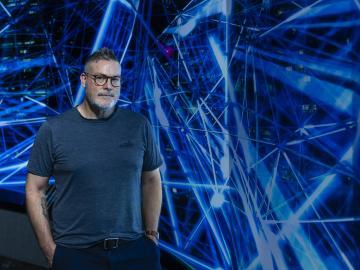
Filter News
Area of Research
- Advanced Manufacturing (1)
- Biology and Environment (100)
- Biology and Soft Matter (1)
- Clean Energy (68)
- Climate and Environmental Systems (5)
- Computational Biology (1)
- Computational Engineering (2)
- Computer Science (7)
- Electricity and Smart Grid (1)
- Functional Materials for Energy (1)
- Fusion and Fission (6)
- Isotopes (1)
- Materials (31)
- Materials for Computing (1)
- Mathematics (1)
- National Security (19)
- Neutron Science (14)
- Nuclear Science and Technology (1)
- Supercomputing (54)
News Topics
- (-) Artificial Intelligence (91)
- (-) Environment (194)
- (-) Partnerships (43)
- 3-D Printing/Advanced Manufacturing (120)
- Advanced Reactors (34)
- Big Data (53)
- Bioenergy (91)
- Biology (98)
- Biomedical (58)
- Biotechnology (22)
- Buildings (57)
- Chemical Sciences (63)
- Clean Water (29)
- Climate Change (99)
- Composites (26)
- Computer Science (187)
- Coronavirus (46)
- Critical Materials (25)
- Cybersecurity (35)
- Decarbonization (79)
- Education (4)
- Element Discovery (1)
- Emergency (2)
- Energy Storage (108)
- Exascale Computing (37)
- Fossil Energy (5)
- Frontier (42)
- Fusion (54)
- Grid (62)
- High-Performance Computing (84)
- Hydropower (11)
- Irradiation (3)
- Isotopes (53)
- ITER (7)
- Machine Learning (47)
- Materials (143)
- Materials Science (139)
- Mathematics (7)
- Mercury (12)
- Microelectronics (3)
- Microscopy (51)
- Molten Salt (8)
- Nanotechnology (60)
- National Security (61)
- Net Zero (13)
- Neutron Science (131)
- Nuclear Energy (107)
- Physics (61)
- Polymers (33)
- Quantum Computing (34)
- Quantum Science (69)
- Renewable Energy (2)
- Security (24)
- Simulation (47)
- Software (1)
- Space Exploration (25)
- Statistics (3)
- Summit (57)
- Sustainable Energy (125)
- Transformational Challenge Reactor (7)
- Transportation (97)
Media Contacts
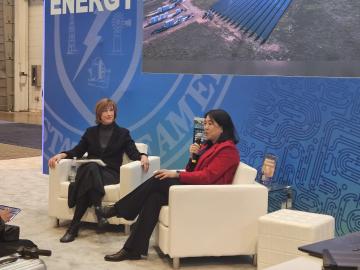
Technology Transfer staff from Department of Energy’s Oak Ridge National Laboratory attended the 2024 Consumer Electronics Show, or CES, in Las Vegas, Jan. 8–12.
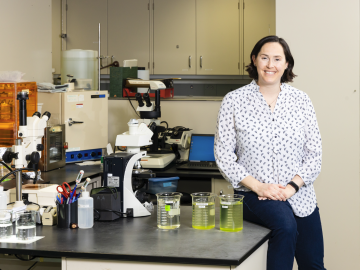
Louise Stevenson uses her expertise as an environmental toxicologist to evaluate the effects of stressors such as chemicals and other contaminants on aquatic systems.
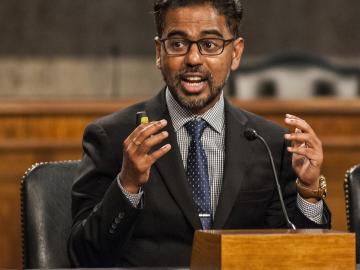
In summer 2023, ORNL's Prasanna Balaprakash was invited to speak at a roundtable discussion focused on the importance of academic artificial intelligence research and development hosted by the White House Office of Science and Technology Policy and the U.S. National Science Foundation.
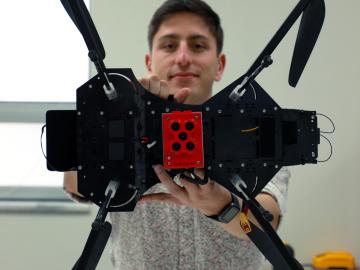
Jack Orebaugh, a forensic anthropology major at the University of Tennessee, Knoxville, has a big heart for families with missing loved ones. When someone disappears in an area of dense vegetation, search and recovery efforts can be difficult, especially when a missing person’s last location is unknown. Recognizing the agony of not knowing what happened to a family or friend, Orebaugh decided to use his internship at the Department of Energy’s Oak Ridge National Laboratory to find better ways to search for lost and deceased people using cameras and drones.
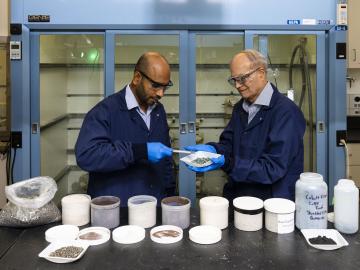
Scientists at ORNL have developed a technique for recovering and recycling critical materials that has garnered special recognition from a peer-reviewed materials journal and received a new phase of funding for research and development.
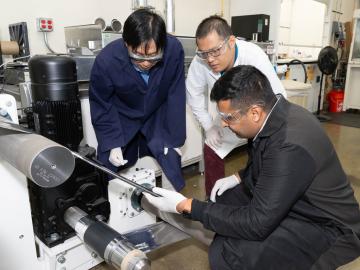
Ateios Systems licensed an ORNL technology for solvent-free battery component production using electron curing. Through Innovation Crossroads, Ateios continues to work with ORNL to enable readiness for production-quality battery components.
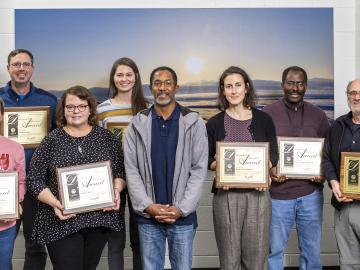
ORNL Environmental Sciences Division Director Eric Pierce presented the division’s 2023 Distinguished Achievement Awards at the organization’s December all-hands meeting.
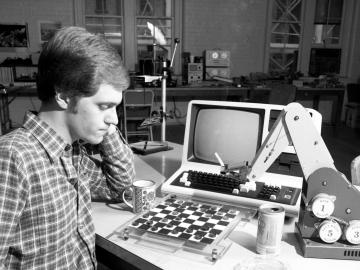
Despite its futuristic essence, artificial intelligence has a history that can be traced through several decades, and the ORNL has played a major role. From helping to drive fundamental and applied AI research from the field’s early days focused on expert systems, computer programs that rely on AI, to more recent developments in deep learning, a form of AI that enables machines to make evidence-based decisions, the lab’s AI research spans the spectrum.
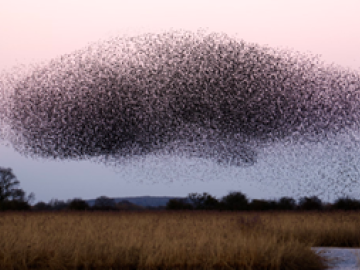
A team of researchers from the University of Southern California, the Renaissance Computing Institute at the University of North Carolina, and Oak Ridge, Lawrence Berkeley and Argonne National Laboratories have received a grant from the U.S. Department of Energy to develop the fundamentals of a computational platform that is fault tolerant, robust to various environmental conditions and adaptive to workloads and resource availability.
